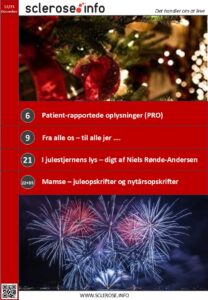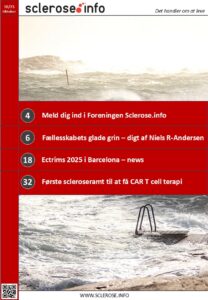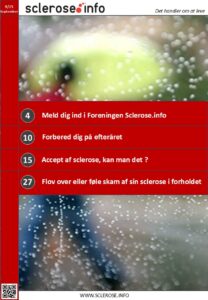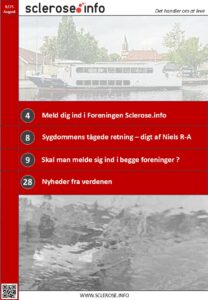

| Genzyme Announces Publication of LEMTRADA (alemtuzumab) Pivotal Studies in The Lancet. |
| CAMBRIDGE, Mass. – October 31, 2012 – Genzyme, a Sanofi company (EURONEXT: SAN and NYSE: SNY), announced today the publication of results from the LEMTRADA™ (alemtuzumab) CARE-MS I and CARE-MS II pivotal studies in patients with relapsing-remitting multiple sclerosis (MS) in the November 1, 2012, online issue of The Lancet.In CARE-MS I and CARE-MS II, LEMTRADA was significantly more effective at reducing annualized relapse rates than the active comparator Rebif® (high dose subcutaneous interferon beta-1a), and more patients on LEMTRADA were relapse-free at two years. In addition, in CARE-MS II, accumulation of disability was significantly slowed in patients given LEMTRADA vs. Rebif. Further, patients treated with LEMTRADA were significantly more likely to experience improvement in disability scores than those treated with Rebif, suggesting a reversal of disability in some patients.“There is a tremendous unmet need for treatments that address the progression of disability that people living with multiple sclerosis can experience,” said Genzyme President and CEO, David Meeker, MD. “Genzyme set a new standard by comparing LEMTRADA exclusively to an approved treatment in all of our studies. Publication of these findings by The Lancet highlights the importance of these results to the MS community.”CARE-MS I and CARE-MS II Efficacy Results CARE-MS I and CARE-MS II (Comparison of Alemtuzumab and Rebif® Efficacy in Multiple Sclerosis) are randomized Phase III studies comparing the investigational treatment alemtuzumab to a standard of care MS treatment, Rebif, in patients with relapsing-remitting MS who were naïve to prior treatment or who had relapsed while on prior therapy, respectively. The results from these trials for LEMTRADA were superior to Rebif on clinical and imaging endpoints, including a reduction in relapse rate and are published in full in The Lancet.“The observed efficacy in these and earlier clinical studies indicates the potential, following regulatory approval, for alemtuzumab to become a transformative therapy amongst the various MS treatment options that are currently available,” said Professor Alastair Compston, Chair of the Steering Committee overseeing the conduct of the study, senior author of both manuscripts, and Professor of Neurology, University of Cambridge, UK.In both studies, LEMTRADA was significantly superior to Rebif in reducing relapses. In CARE-MS I, 78 percent of patients treated with LEMTRADA remained relapse-free for two years, providing statistically significant improvement over Rebif (77.6 percent vs. 58.7 percent, p<0.0001). In the CARE-MS II trial, 65 percent of patients treated with LEMTRADA were relapse-free at two years, compared to 47 percent with Rebif (p<0.0001). In addition, in CARE-MS II, LEMTRADA reduced relapse rate to a greater extent than Rebif in all subgroups defined by previous therapy, including: with or without any interferon therapy, and those previously treated with Rebif or Copaxone® (glatiramer acetate injection). Study data also showed a strong clinical benefit by reducing the risk of sustained accumulation of disability in patients taking LEMTRADA in CARE-MS ll by 42 percent as compared with Rebif (p=0.008), with significant improvement in disability scores that suggested a reversal of pre-existing disability in some patients. In the trial, the mean disability score for patients treated with LEMTRADA decreased over a two-year period, indicating an improvement in their physical disability, while the mean score for patients given Rebif increased, indicating a worsening of disability (p<0.0001). CARE-MS I and II Safety Results In both CARE-MS I and CARE-MS II, the incidence of serious adverse events was similar between the two treatment arms. As previously reported, autoimmune disorders were more common on patients treated with LEMTRADA, primarily autoimmune thyroid disease. Approximately 1 percent of LEMTRADA-treated patients in each study developed immune thrombocytopenia (ITP) over the two year study period. There were no cases of anti-GBM disease reported during the study period with one case of glomerulonephritis during the follow-up period as has been previously reported. The percentage of LEMTRADA-treated patients reported to have malignant neoplasms was <1 percent. The overall safety profile was similar for the LEMTRADA 12 mg and 24 mg groups. In both trials, the autoimmune disorders were detected early through a monitoring program and managed using conventional therapies. Patient monitoring for autoimmune disorders is incorporated in all Genzyme-sponsored trials of LEMTRADA for the investigational treatment of multiple sclerosis. Since it is not yet approved for the treatment of MS, LEMTRADA must not be used in MS patients outside of a formal, regulated clinical trial setting in which appropriate patient monitoring measures are in place. About the CARE-MS Trials About LEMTRADA™ (alemtuzumab) LEMTRADA is a monoclonal antibody that selectively targets CD52, a protein abundant on T and B cells. Treatment with LEMTRADA results in the depletion of circulating T and B cells thought to be responsible for the damaging inflammatory process in MS. LEMTRADA has minimal impact on other immune cells. The acute anti-inflammatory effect of LEMTRADA is immediately followed by the onset of a distinctive pattern of T and B cell repopulation that continues over time, rebalancing the immune system in a way that potentially reduces MS disease activity. Genzyme holds the worldwide rights to LEMTRADA and has primary responsibility for its development and commercialization in multiple sclerosis. Bayer HealthCare retains an option to co-promote LEMTRADA in multiple sclerosis. Bayer HealthCare has notified Genzyme of its intention to co-promote under this option. Upon regulatory approval and commercialization, Bayer would receive contingent payments based on sales revenue. LEMTRADA™ is the proprietary name submitted to health authorities for the company’s investigational multiple sclerosis agent alemtuzumab. About Genzyme, a Sanofi Company Genzyme has pioneered the development and delivery of transformative therapies for patients affected by rare and debilitating diseases for over 30 years. We accomplish our goals through world-class research and with the compassion and commitment of our employees. With a focus on rare diseases and multiple sclerosis, we are dedicated to making a positive impact on the lives of the patients and families we serve. That goal guides and inspires us every day. Genzyme’s portfolio of transformative therapies, which are marketed in countries around the world, represents groundbreaking and life-saving advances in medicine. As a Sanofi company, Genzyme benefits from the reach and resources of one of the world’s largest pharmaceutical companies, with a shared commitment to improving the lives of patients. Learn more at www.genzyme.com. Sanofi Forward Looking Statements This press release contains forward-looking statements as defined in the Private Securities Litigation Reform Act of 1995, as amended. Forward-looking statements are statements that are not historical facts. These statements include projections and estimates and their underlying assumptions, statements regarding plans, objectives, intentions and expectations with respect to future financial results, events, operations, services, product development and potential, and statements regarding future performance. Forward-looking statements are generally identified by the words “expects”, “anticipates”, “believes”, “intends”, “estimates”, “plans” and similar expressions. Although Sanofi’s management believes that the expectations reflected in such forward-looking statements are reasonable, investors are cautioned that forward-looking information and statements are subject to various risks and uncertainties, many of which are difficult to predict and generally beyond the control of Sanofi, that could cause actual results and developments to differ materially from those expressed in, or implied or projected by, the forward-looking information and statements. These risks and uncertainties include among other things, the uncertainties inherent in research and development, future clinical data and analysis, including post marketing, decisions by regulatory authorities, such as the FDA or the EMA, regarding whether and when to approve any drug, device or biological application that may be filed for any such product candidates as well as their decisions regarding labelling and other matters that could affect the availability or commercial potential of such product candidates, the absence of guarantee that the product candidates if approved will be commercially successful, the future approval and commercial success of therapeutic alternatives, the Group’s ability to benefit from external growth opportunities, trends in exchange rates and prevailing interest rates, the impact of cost containment policies and subsequent changes thereto, the average number of shares outstanding as well as those discussed or identified in the public filings with the SEC and the AMF made by Sanofi, including those listed under “Risk Factors” and “Cautionary Statement Regarding Forward-Looking Statements” in Sanofi’s annual report on Form 20-F for the year ended December 31, 2011. Other than as required by applicable law, Sanofi does not undertake any obligation to update or revise any forward-looking information or statements. |






